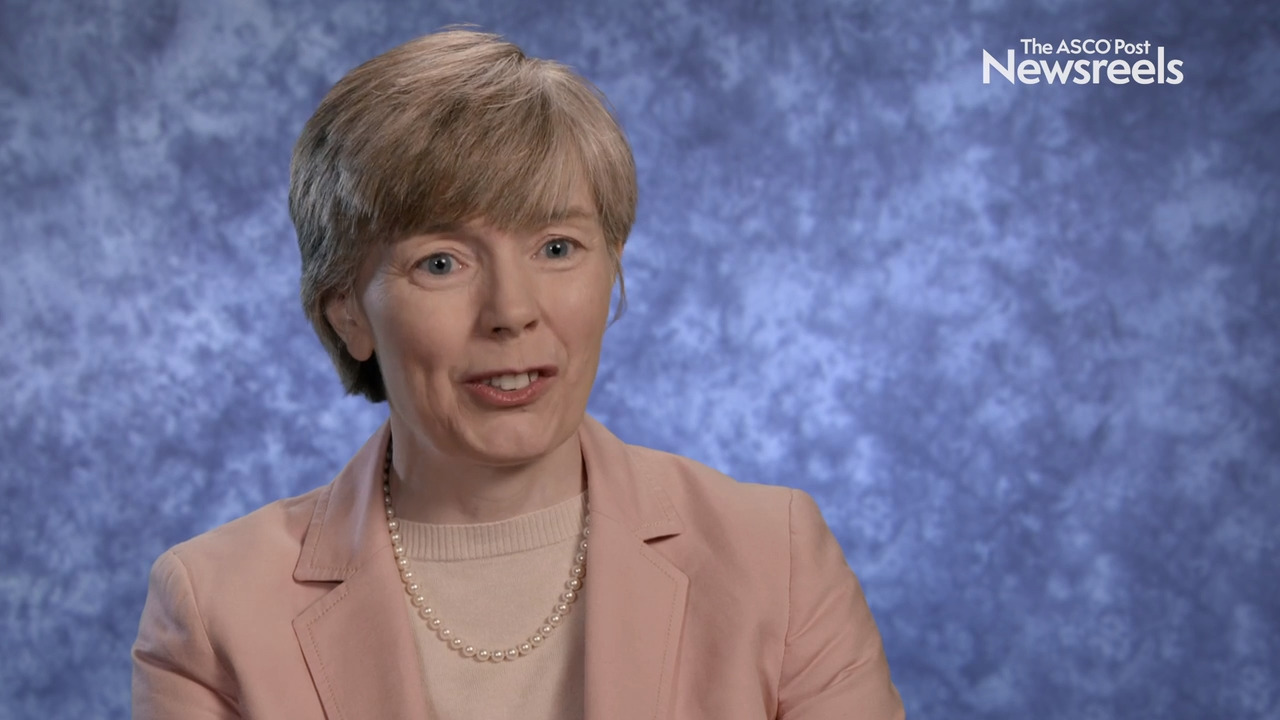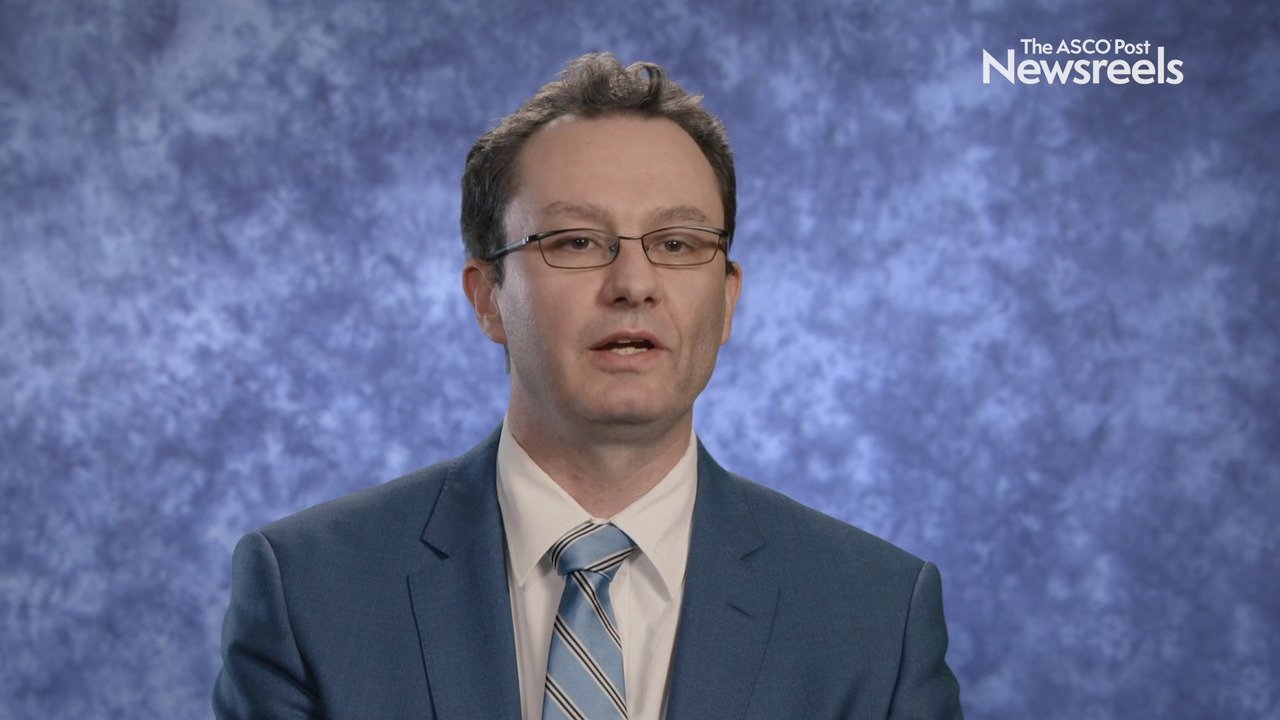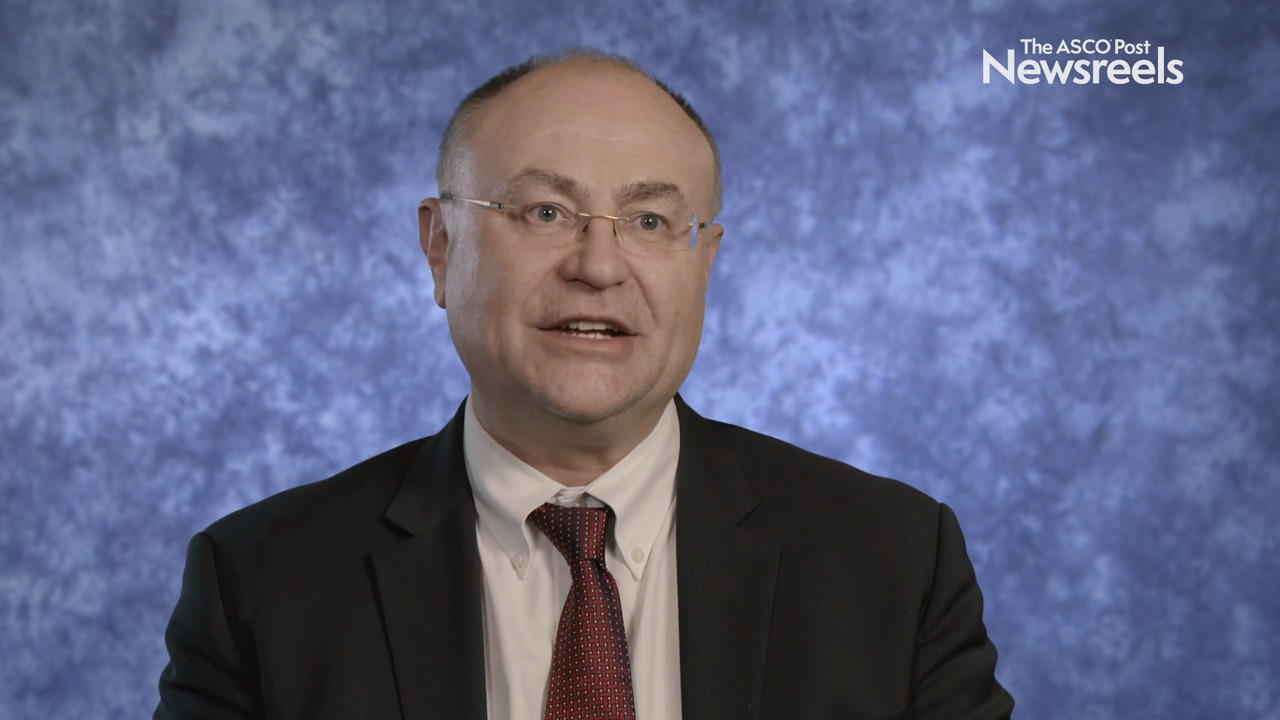Eyal Meiri, MD, on Pembrolizumab in Colorectal Cancer: Results From the TAPUR Study
2020 Gastrointestinal Cancers Symposium
Eyal Meiri, MD, of the Cancer Treatment Centers of America at Southeastern Regional Medical Center, discusses his findings on heavily pretreated patients with colorectal cancer with high tumor mutational burden. Monotherapy with pembrolizumab showed antitumor activity, which merits further study to confirm efficacy (Abstract 133).
Eileen M. O’Reilly, MD, of Memorial Sloan Kettering Cancer Center, discusses phase II trial findings showing that cisplatin and gemcitabine, with or without veliparib, exceeded a prespecified response rate for patients with pancreatic adenocarcinoma and a germline BRCA/PALB2 mutation (Abstract 639).
Scott Kopetz, MD, PhD, of The University of Texas MD Anderson Cancer Center, discusses phase III findings from the BEACON CRC trial, which had demonstrated that the triplet regimen of encorafenib, cetuximab, and binimetinib significantly improved overall survival in patients with a BRAF V600E mutation. The new analysis showed that the regimen also led to substantial improvement in patient-reported quality of life compared with current standard of care (Abstract 8).
Thibaud Kössler, MD, PhD, of Geneva University Hospital, discusses the first trial to study the efficacy and safety of anti–PD-1 immunotherapy plus short-course radiotherapy in localized microsatellite-stable rectal cancer. The study explores whether a gene signature can predict sensitivity to immunotherapy (Abstract TPS272).
The ASCO Post Staff
Heinz-Josef Lenz, MD, of USC Norris Comprehensive Cancer Center, discusses how treating microsatellite instability–high/DNA mismatch repair–deficient metastatic colorectal cancer with nivolumab once every 2 weeks plus low-dose ipilimumab every 6 weeks may represent a new option for patients (Abstract 11).
Thomas Yau, MBBS, of the University of Hong Kong, discusses this triplet combination, which yielded better responses than doublet combination therapy in patients with advanced liver cancer, but with more severe adverse events and more treatment discontinuations (Abstract 478).





